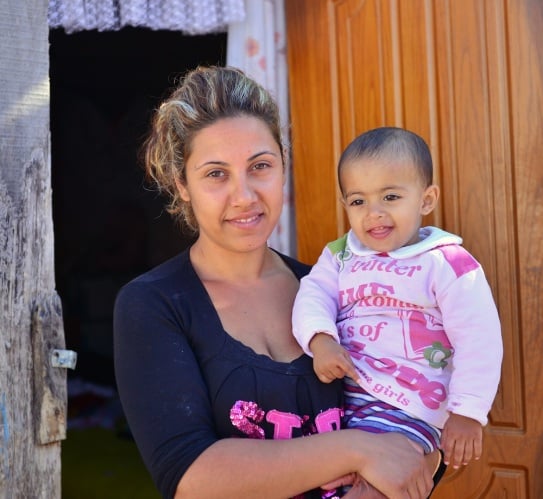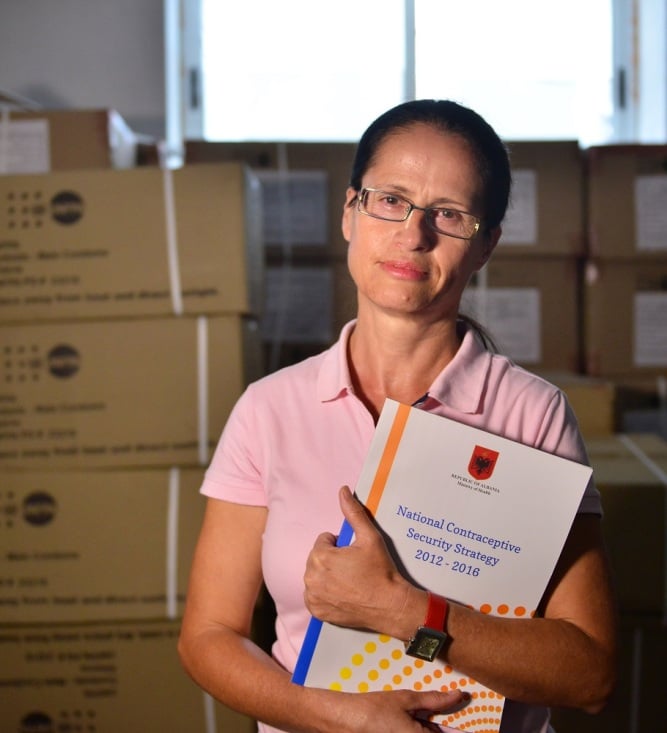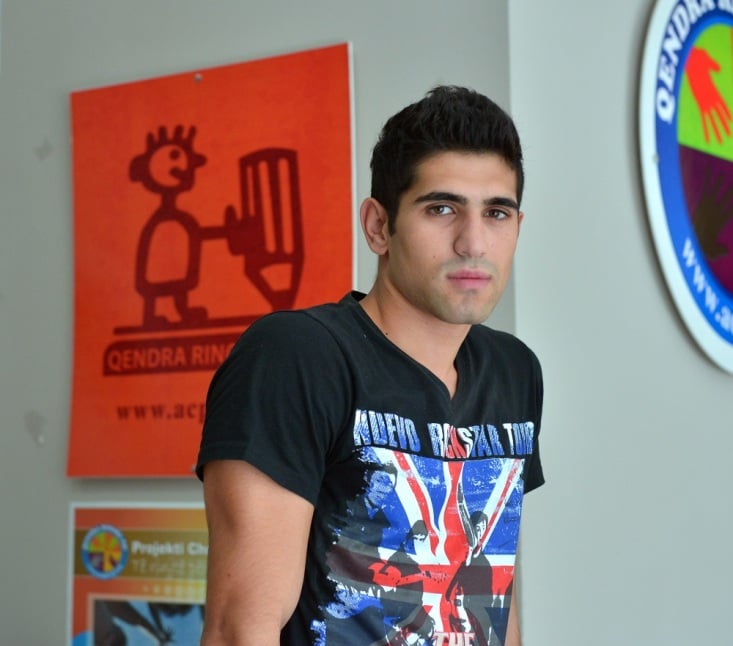TIRANA, Albania – Anxhela Muhaxhi and her husband Erion married when she was just 12 years old. Early marriage and childbearing are common in her Roma community in Fushë-Krujë, 25 kilometres from the Albanian capital city of Tirana, and many girls there don’t even bother attending school as a result.
The young couple now have a 6-month-old baby girl they struggle to feed. Erion, 18, managed to get a summer job this year, but has had difficulty finding work in the winter. “Some days he works, some days he doesn’t have anything to do,” says Anxhela, 13.
The average age at which Roma men marry, 18.2 years, is nine years earlier than the national average of 27.2 years. Roma women marry at the youngest average age (15.5 years) of all ethnic groups in Albania, according to 2005 data. Anxhela, for one, regrets marrying so young. “I was a child, I should have waited a few more years,” she says. “I want my daughter to marry when she is older, not suffer like me now.”
UNFPA and its partners in Albania are working to improve access to family planning information and services among Roma and other marginalised groups through a Total Market Approach (TMA) for Family Planning/Reproductive Health Commodity Security that engages the public sector, commercial suppliers, and nongovernmental organisations to ensure that reproductive health supplies are reliably available at prices everyone can afford. Currently, just 25 percent of Roma in Albania have enough money to buy medicines, including contraceptives, and many are being left even more vulnerable as healthcare services decrease in rural areas.
Difficult life for Albania’s Roma
Members of Albania’s Roma community are subject to longstanding social exclusion and prejudice, leading to unemployment and illiteracy rates four times higher than average. Most lack civil registration and don’t speak the official language, making attaining an education difficult and restricting job opportunities. Access to health services and housing programmes is also limited among Roma.

Mimoza Rakipi and her two daughters are from the same Roma community as Anxhela and her family. They live in a house with no running water, plumbing, or roof after Mimoza’s father-in-law lost their previous home due to gambling, a growing problem among unemployed men in the area. Because of her lack of education, Mimoza says she is already “lost”, but she hopes for a better future for her girls.
Like many Roma, Mimoza speaks little Albanian, and barely knows how to read or write. But at a community centre serving Fushë-Krujë’s Roma, a UNFPA-trained volunteer mediator offers Mimoza advice on enrolling in vocational training as a tailor and enhancing her language skills.
That mediator, Fatmira Dajlani, has had her own struggle to get into the workforce. “My husband and my in-laws did not want me to study or work, so it was very difficult for me,” she says. “I am insisting that my daughter gets educated, even though my husband does not agree.”
Increasing access to contraceptives

UNFPA has been active in Albania for 24 years, with a particular focus on family planning. The agency helped the Albanian government develop its National Contraceptive Security Strategy, which aims to increase access to family planning resources in remote and marginalised communities. The state spends 80,000 USD annually distributing free male condoms, birth-control pills, IUDs, and injectable birth control at 431 public-health centres across the country. The strategy’s goal is to increase the usage rate of modern contraceptives by 30 percent. That rate was just 11 percent in 2008, when the last demographic and health survey was conducted.
“Every couple, every woman, and every man can have the opportunity to choose the most appropriate method [of contraception] and find it for free in the public sector,” says Dr Miranda Hajdini, the national coordinator of the state-owned Logistic Management Information System (LMIS), which is responsible for coordinating the nationwide distribution of contraceptives.
Work to increase access to contraceptives through a total market approach also includes social-marketing and private-market components such as partnerships with pharmacies like the one in Tirana where Naime has now been working for 35 years. She helps advise clients on family planning and make sure they have access to a range of contraceptives at various prices.
“The social marketing network helps ensure people can get the method and brand [of contraception] they want in order to plan their families and protect themselves,” Naime says.
Youth educating their peers

Health clubs are another component of the effort to increase outreach to youth. These volunteer-run high school groups are established by school doctors and students, and encouraged by government health agencies. They carry out awareness-raising activities on reproductive-health issues in collaboration with the youth centres, supported by UNFPA and the Albanian Centre for Population and Development (ACPD), an NGO affiliated with the International Planned Parenthood Federation (IPPF).

